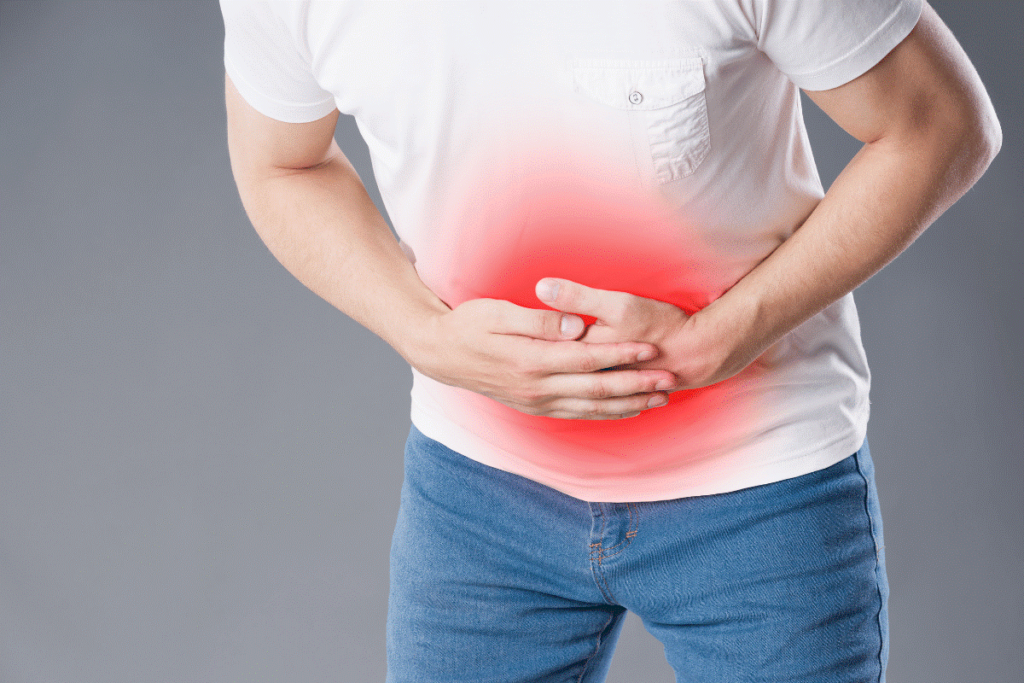All You Need To Know About Constipation

What really is constipation?
There are many different ways to define constipation, and it is not just about not having a bowel movement for a day or two. People who go to the toilet daily may also be constipated if they are straining or if their stool is not well-formed. If you’re struggling, a gut health nutritionist can help identify the root cause and develop a tailored plan to support regularity. Here are some red flags to look out for:
- Consistency: Bristol Chart 1 & 2 – see below
- Sensation: Abdominal Pain upon evacuation or feeling of incomplete evacuation
- Straining: Difficulty passing stool – a lot of effort required
- Laxatives: Reliance on laxatives
Why should you deal with constipation with a gut health nutritionist?
Constipation can be very discomforting and affect us mentally. It is essential for food to transit out of the body and not remain stagnant within it. Constipation and having a slow transit time are serious health issues. If you can’t have a bowel movement, you can’t get rid of toxins and waste that build up in the colon. This waste is reabsorbed, and you add toxins back into the body. As your body becomes overly toxic, you may experience bad breath or skin issues, and this creates a perfect environment for more serious symptoms listed in the following section.
The Bristol Stool Chart is a useful reference tool for constipation:

Cause of Constipation
Dietary/Lifestyle factors
- Inadequate fiber intake- i.e., lack of fruit, vegetables, wholegrains, nuts, legumes
- Insoluble fibre: Found in wheat bran, vegetables, and whole grains.
- Bulk up the stools and act like a brush, sweeping through the bowels to remove everything and keep things moving.
- Soluble fibre: Found in oat bran, nuts, seeds, beans, lentils, and peas, as well as some fruits and vegetables. The soluble variety absorbs water and forms a gel-like substance. This helps your stool pass smoothly through your bowels and improves its form and consistency.
- Inadequate water intake
- Overuse of coffee or alcohol.
- Sedentary lifestyle – Reduced levels of exercise may also play a role as it affects the motility of the colon
- Chronic Stress
- Food high in fat and sugar
- Resisting the urge to go to the toilet- By resisting the urge to go, the stool becomes drier and harder to pass (the longer you leave it, the worse it gets), which aggravates the bowel and can lead to
- evacuation disorder.
Hormonal Causes
- It is also not uncommon for women to become more constipated before their menstrual cycle, as there is a surge in the hormone progesterone. Progesterone has a calming effect on the body, which can relax the muscles of the colon, thereby preventing contractions and reducing the likelihood of constipation. This is usually resolved once menstruation occurs. Natural laxative support may be required.
- Gastrointestinal causes
- SIBO – Small Intestinal Bacterial Overgrowth (SIBO) can lead to constipation. The rate at which food moves through the gut can be decreased, slowing down the transit time.
- Anatomic Causes
- Structural causes of constipation include anal stenosis or atresia, anal fissure, hemorrhoids, and obstructing tumors.
Drugs
- Medications contributing to constipation include long-term use of antibiotics, antidepressants, iron, nonsteroidal anti-inflammatory drugs, psychotropic drugs, and vitamin D intoxication.
Miscellaneous Causes
- Other causes of constipation include celiac disease, cow milk protein allergy, cystic fibrosis, inflammatory bowel disease, and hypothyroidism.

Cures for Constipation
Before looking into cures, it is essential to identify the triggers that can be caused by the factors listed above.
Below are some possible cures for constipation:
- Magnesium citrate can increase the water content of the bowel, supporting bowel motility. 400 mg- 100 mg daily.
- Kiwi fruit provides dietary fibre as well as beneficial compounds to support motility and bowel movements. 2 kiwi fruits are recommended daily.
- 1-2 tablespoons of flaxseed daily can support bowel movement due to its high content of both soluble and insoluble fibre.
- Certain Prebiotics and Probiotics can also support constipation, which must be discussed with your nutritionist.
If you’re experiencing ongoing constipation, a gut health nutritionist can help pinpoint dietary or microbiome imbalances and provide personalized solutions. Addressing the root causes is the first step before reaching for a quick fix. Reach out to FixMe Nutrition for a personalized consultation today!

